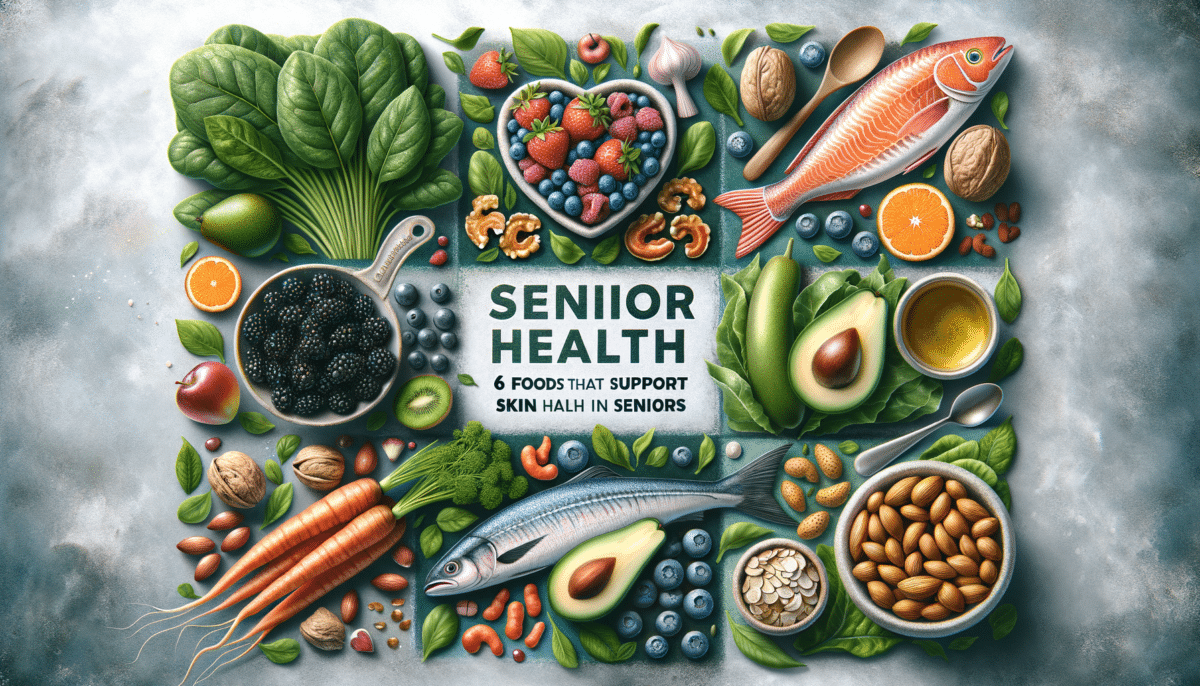Introduction: The Importance of Skin Health in Seniors
The journey of aging brings with it a host of changes, and one of the most visible is the transformation of our skin. As we age, maintaining skin health becomes increasingly crucial, not just for aesthetic reasons but also for overall well-being. Skin acts as the first line of defense against environmental factors, and its health is indicative of our general health status. This article delves into the foods that can support skin health in seniors, providing an insightful guide to nurturing the body’s largest organ through nutrition.
The Role of Antioxidants in Skin Health
Antioxidants are compounds that play a vital role in protecting the skin from oxidative stress, which can accelerate aging and lead to various skin issues. In seniors, the skin’s natural antioxidant defenses diminish, making dietary intake even more critical. Foods rich in antioxidants, such as berries, leafy greens, and nuts, can help combat free radicals and support skin health.
For instance, berries like blueberries and strawberries are packed with vitamins C and E, which are known to protect the skin from sun damage and improve skin texture. Leafy greens, including spinach and kale, provide lutein and zeaxanthin, which not only support the skin but also promote eye health. Nuts, especially almonds and walnuts, offer vitamin E and omega-3 fatty acids, contributing to skin elasticity and moisture.
Incorporating a variety of antioxidant-rich foods into the diet can help seniors maintain a vibrant and healthy complexion, reducing the signs of aging and enhancing overall skin resilience.
Omega-3 Fatty Acids and Skin Hydration
Omega-3 fatty acids are essential fats that have been shown to support skin health by maintaining its hydration and elasticity. These healthy fats are found in abundance in fatty fish like salmon, mackerel, and sardines, as well as in flaxseeds and chia seeds.
For seniors, omega-3s can help alleviate dry skin, a common issue as the skin’s natural oil production decreases with age. The anti-inflammatory properties of omega-3s also aid in reducing redness and irritation, making them beneficial for those with sensitive or reactive skin.
Regular consumption of omega-3-rich foods can lead to noticeable improvements in skin texture and moisture levels, providing a natural and effective way to support skin health as we age.
The Power of Hydration: Water-Rich Foods
Hydration is a key factor in maintaining healthy skin, particularly for seniors who may experience decreased thirst sensations. While drinking water is essential, incorporating water-rich foods into the diet can also significantly contribute to skin hydration.
Fruits and vegetables like cucumbers, watermelon, and oranges are excellent sources of hydration, offering high water content along with essential vitamins and minerals. These foods not only keep the skin plump and hydrated but also provide antioxidants that protect against environmental damage.
Maintaining adequate hydration through diet can help seniors achieve a radiant complexion, reduce the appearance of fine lines, and support overall skin health.
Vitamins and Minerals: Building Blocks of Healthy Skin
Vitamins and minerals are fundamental to skin health, providing the necessary nutrients for repair and regeneration. For seniors, ensuring an adequate intake of these nutrients can help combat the signs of aging and promote a healthy glow.
Vitamin C, found in citrus fruits and bell peppers, is crucial for collagen production, which helps maintain skin firmness and elasticity. Zinc, present in foods like pumpkin seeds and lentils, supports skin healing and reduces inflammation. Additionally, selenium, found in Brazil nuts and whole grains, offers protective benefits against UV damage.
By focusing on a diet rich in vitamins and minerals, seniors can support their skin’s structural integrity and resilience, paving the way for healthy aging.
Conclusion: Nurturing Skin Health Through Nutrition
In conclusion, maintaining skin health in seniors is not just about external care but also about nourishing the skin from within. By focusing on a balanced diet rich in antioxidants, omega-3 fatty acids, water-rich foods, and essential vitamins and minerals, seniors can support their skin’s health and vitality.
Embracing these dietary changes can lead to noticeable improvements in skin texture, hydration, and overall appearance, allowing seniors to age gracefully and confidently.
